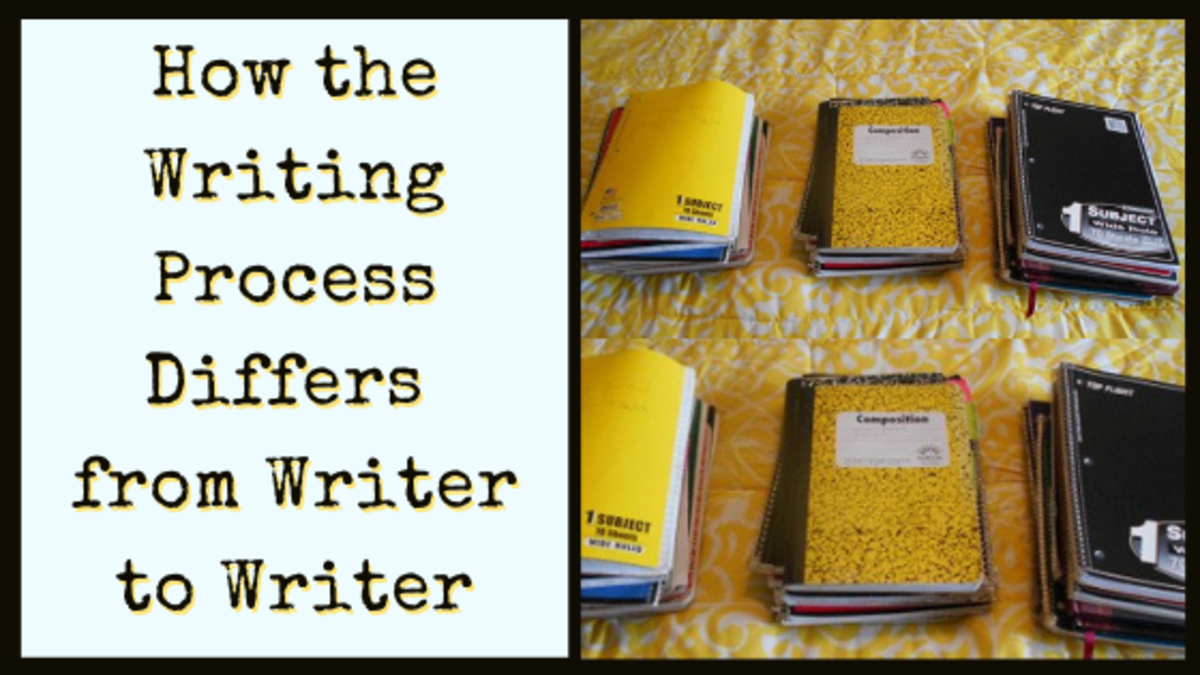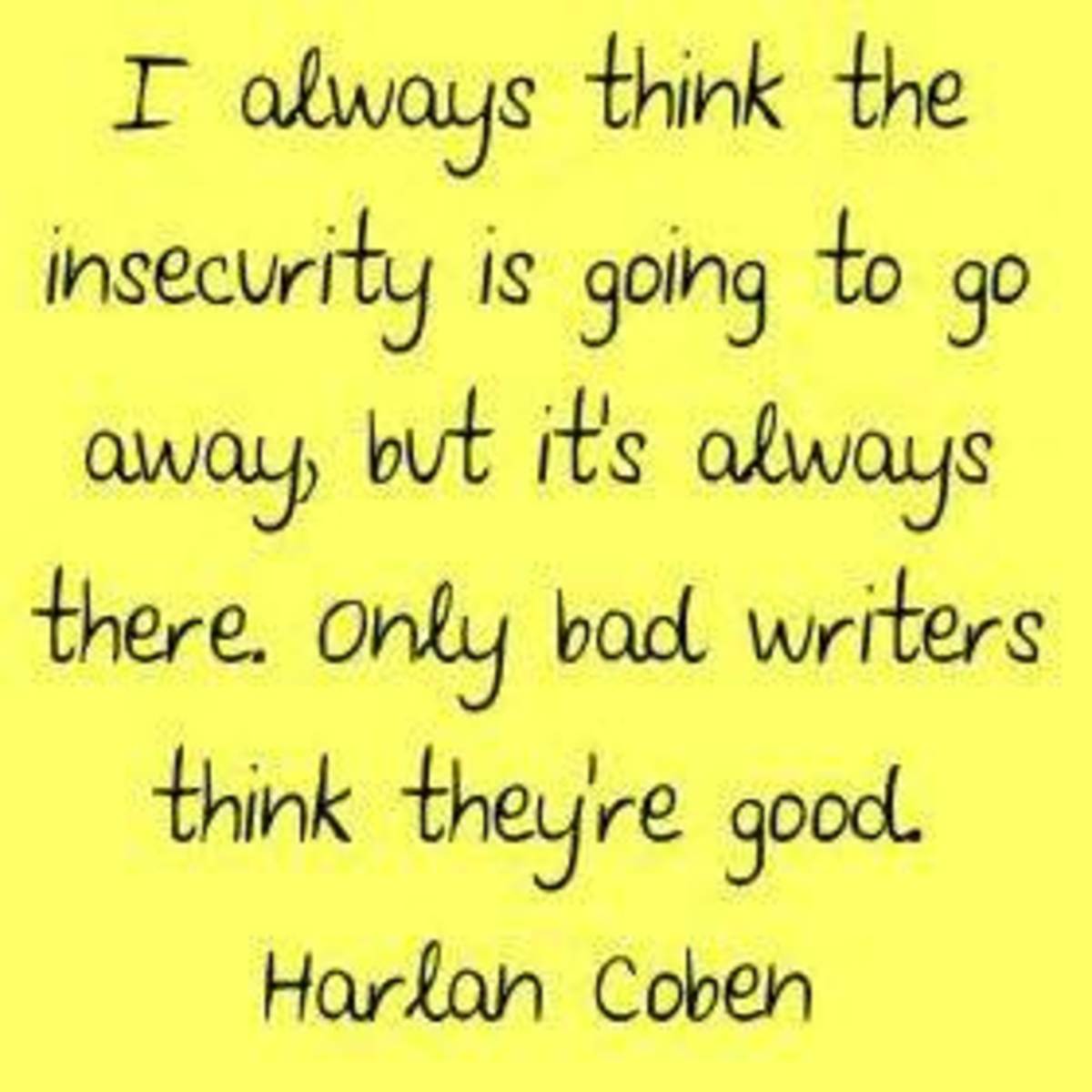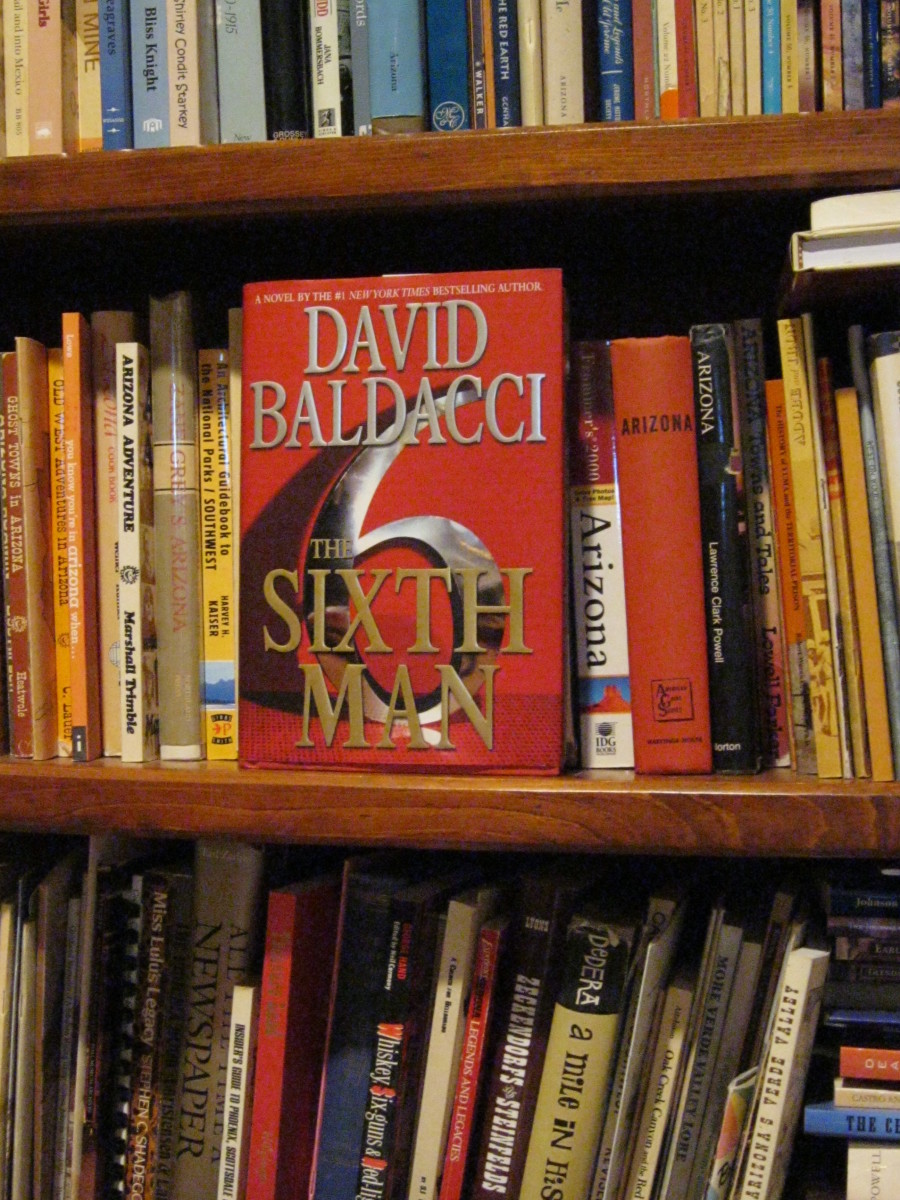How to Become a Disciplined Writer
If you’re a writer, and I’m assuming you are since you’re here, you’ve probably been told about a million times that there is one thing that all writers have in common: they write. Being a writer is not about being published or receiving fan mail and it is definitely not about making money. Being a writer is about writing. Unfortunately, writing on regular basis is hard, especially since most writers have to work another job as their writing isn’t paying for itself.
I was once that writer who would plan to write and would end up surfing the net, playing games, eating, reading someone else’s writing. I knew I had talent but I hadn’t developed my craft because I simply didn’t spend enough time writing. Like so many people I though that writing was about sitting down and writing something beautiful the first time. I was so disheartened when my work wasn’t beautiful the first time around. I couldn’t figure out what I was doing wrong.
But of course, becoming a good writer takes years of practise. And years of practise takes serious discipline. In 2008 I dedicated an entire year to solving my self-discipline problem. I have always known that I wanted to be a professional writer, and finally I knew how to make that happen.
It turns out self-discipline is just as important after you’ve solved the discipline problem and become a full time writer. If anything it’s more important. Below are the tips, tricks and tools I used in order to become a self-disciplined writer.

Train yourself to write
Do you ever sit down in front of your paper or computer and realize that you have no desire to write at that moment? So you decide to spend a little time checking your emails, then maybe do some dishes and then you’ll write. Yeah, that’s going to have to stop. Whether writing is your passion or your job it deserves your undivided focus and attention. Remember that by sabotaging your own work you’re not hurting anyone but yourself. A great way to train yourself to write when you mean to is to do a little free writing. Silence that voice in your head that’s encouraging you to play Angry Birds and start typing or writing your thoughts; any thoughts at all, as long as you’re writing. If you do this often enough it will become a habit for you to get right to work when you mean to.
Beat negativity
Ever get the “I suck at life” blues? When you start a new story writing seems like so much fun but by the time you’re halfway through it you’ve decided you are a terrible writer that no one will ever read, so why bother? Well, guess what? You miss 100% of the stabs at super villains you don’t take. Then, they’ve achieved world domination and you look like an idiot. I don’t know you, for all I know you’re not a very good writer…yet. You certainly aren’t going to get any better unless you focus on self-discipline and hone your craft. Even if you have tons of talent in your finger tips you’ll still need plenty of practise to learn the skills that nobody is born with. And, even if you have all that talent and all those skills you still have to write something or it’s all going to go to waste. So chuck that negativity out the window. Anyone can learn to write well, all it takes is time and effort.
Do you need a strict schedule?
Most books or articles on developing discipline for your writing encourage you to set up a schedule and stick to it. Personally, that just doesn’t work for me. Life gets in the way of schedules. It gave me so much grief to feel constantly guilty about missing my planned block of writing time. Today I sit down and write at every free moment, and it works for me. If you are someone who requires a more systematic approach then go ahead and make a schedule but stick to it. It’s too easy to get into the habit of pushing your writing back. If you miss a day for reasons beyond your control don’t worry about it and whatever you do don’t try to make up for it, it will only stress you out. On the other hand if you significantly exceed your goal don’t take the day off. Congratulate yourself and renew your commitment to writing. That commitment deserves your time and attention.
Writing in the morning
It can be disheartening to sit down after a long day and, exhausted, force yourself through a few paragraphs only to read over them and realize they are horrible. Many professional writers, including Ray Bradbury, suggest writing first thing in the morning when you’re fresh from a good night’s sleep. It has been suggested that in the morning you are closer to your subconscious right after you wake up and will have better access to your creativity.
Not a morning person? Setting your alarm an hour early to get some writing done can be difficult, especially if you didn’t get enough sleep and are feeling drowsy. The obvious answer is to go to bed a few hours earlier, but that’s not always an option. On drowsy morning wake yourself up with a few jumping jacks, a glass of icy water and a huge smile. Yep, smile. Smiling, even when you don’t feel like it, actually signals your brain to be in a better mood. If you really can’t get up in the morning, don’t worry about it. Everyone has a different writing style. You’ll have to experiment to see what works best for you.
Experimentation
Everyone writes differently. If you are serious about improving your self-discipline you are going to need to figure out what environment you work best in and what your writing style is. For example:I like to write by hand and I can’t write properly with anyone else in the room. I average about 3 pages an hour. I need to take a break after every scene or I get stuck. I know these things about myself and I am able to plan accordingly. I plan writing times for when my husband is at work or asleep, I have plenty of pens and I know how long it will take me to complete a scene. When my brain starts to feel foggy I allow myself to get up and do something else for five minutes, then I always go back to work once my head is cleared.
Pay attention to how you write, what your pace and preferences are and what kind of environment you need. Then do your best to make all those things happen so that you have the most effective writing experience. It’s always easier to convince yourself to sit down and write when your last writing session was successful.
Finding time to write
Morning not working for you? You’ll need to figure out when is the best time for you do your writing. If you’re working during the day consider going to sleep an hour or two later and writing in the evening or writing at lunch. Your chunk of writing time doesn’t have to be a big one. Even ten minutes here and there will be enough to get you into the habit of using your free time to write. If you feel like you have absolutely no time at all try keeping a pocket notebook with you for a few days and write down everything you do. Is it all necessary? Could any of it be compressed to allow you a few minutes to write? Or done less frequently? Could somebody else do it a few times a week?
Don’t overwork yourself
Don’t let yourself burn out by writing too much. I take at least one day off from writing every week. Everyone who has a day job has a day off. If the world comes down on you and you miss a day, maybe you were sick, you had to work a double shift, your kid got in trouble at school or you found out your mother-in-law is coming to visit, just relax, it’s okay. Beating yourself up about things beyond your control will only stress you out more which is not conducive to good writing, or a good writing experience. That being said don’t let yourself cheat. Draw a clear line between missing a day because you have to and missing a day because you feel like it.
Write everyday
As I said in the introduction there is one trait that connects all writers: we write. Writing everyday will get you into the habit of making your writing a priority and thinking daily about your work. Letting days or weeks go by without working on a WIP (work in progress) can cause you to lose your emotional thread, or worse, to get out of touch, or bored with, your characters. If you don’t have a WIP you can still write everyday by doing some free writing, writing prompts or just journaling about your day.
Set and enforce deadlines
I don’t know about you but the very idea of a deadline gets me into writing mode. I have always been someone who worked well under pressure. I found it very difficult when I first started writing full time to maintain my motivation and momentum when it didn’t seem to matter when I finished something. Setting deadlines, and enforcing them, is a great way to retain that feeling of obligation that will get you working. If you find that you simply can’t enforce your own deadlines seek out a writer’s workshop or critique partner who can hold you to your deadlines, and who you can help in the same way. Another option for enforcing deadlines is to enter writing contests or a literary journal’s call for submissions.
Set daily, weekly, monthly and annual goals
Just like in any other undertaking, goals are important. Having clear goals keeps you motivated and gives you a feeling of accomplishment that has nothing to do with publishing contracts or fan mail. Writing can be lonely and thankless, especially if you are the only one reading your work. I set my daily goals down in a to-do list that I keep next to me all day, highlighting the things I’ve accomplished. My weekly goals I keep in my head. My monthly and yearly goals however I have on a chart on my wall so that I see it constantly throughout the day.
Don’t rush it
When setting goals, however, it’s important to remain realistic about what you can accomplish. Expectations that are too high will have the opposite effect of realistic goals. They will make you feel unaccomplished and dejected when you never get to cross everything on that list. You are the only one who knows what you can accomplish on a day to day basis. Even a goal as modest as 200 words a day can feel significant at the end of the month.
If you’re feeling overwhelmed by your project break it down
A novel is a mammoth undertaken. Many people spend their entire loves working on one book. We’re not all Nora Roberts, who seems to be able to write books faster then we can read them. Contemplating a massive project or even a moderate one can make you anxious enough to want to give up entirely. Take a deep breath and step back from the project. Break it down into more manageable pieces.
For Example: You have decided to write a 100,000 word novel. That sounds terrifying right now but lets break it down. One typed page in word, Times New Roman, 12 point font is only 650 words. That takes the average person about 20-30 minutes of continual writing. Still scary? 15 minutes twice a day is one page a day. 7 pages a week. Not impressed? It’s 365 pages a year. Bam! You have a novel.
Treat writing as a job
For some people writing is a hobby, there’s nothing wrong with that. But since you’re here reading about how to become a self-disciplined writer I’m guessing that for you it’s a little more than that. If you want writing to be your career than treat it like one. The odds are that most published writers won’t make enough money to support themselves, so most writers still have a day job throughout their whole writing career.
Even if you are one of the lucky few you’ll have to write that first book before the advances start rolling in. Don’t put off being a ‘professional writer’ until you can work at it full time. Treat writing like a second job. Call it work and give it the same level of importance (if not the same amount of time) as the job you get a pay cheque from. When people ask you what you do tell them you’re a writer. Be the change you want to see and fake it till you make it. The only person stopping you from being a ‘professional writer’ is you.
Celebrate your accomplishments
Does writing suddenly seem more difficult and less romantic than you were hoping? Yep, this isn’t bohemian Paris and we’re not members of the Bloomsbury Group. Writing is hard. You have to work at it every day to develop craft and skill. And you have to do all of that while still having to deal with the rest of your life. But after all that hard work it’s important to remember to celebrate your accomplishments. The little ones (Yay! I got my one page done today.), the medium sized ones (Yay! I’ve stuck to my schedule for a whole week.), the big ones (Yay! I finished my novel.), and the huge ones (CONTRACT! CONTRACT! CONTRACT!). Call up your friends and loved ones (whoever will listen) and have a moment to gloat. Do a victory dance or just sit back with a glass of wine. Every accomplishment is a reason to celebrate, and a reason to maintain your hard-earned self-discipline.
Good luck and get writing!
More hubs on writing
- How to Write Great Characters
Great characters must have two main components. First they need charisma and a strong, magnetic personality. They must also have a clear function within the story. They need to change and grow as a person as the plot unfolds. They need clear... - Reasons You Can't Write a Novel and How to Overcome ...
Let’s face it, unless you’re independently wealthy, have a full staff taking care of your chores and no children, pets, friends, family or other hobbies there are always going to be things in your life that will distract you from that book you... - How (and Why) to Keep a Journal
If life is worth living, it’s worth recording. - Tony Robbins Throughout my life I have started many journals and until now I have not been able to stay faithful to one. What kept me going this time was a few amazing facts about how journals...







